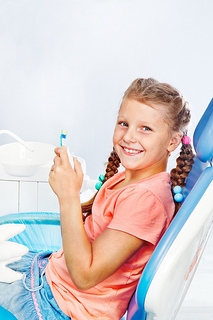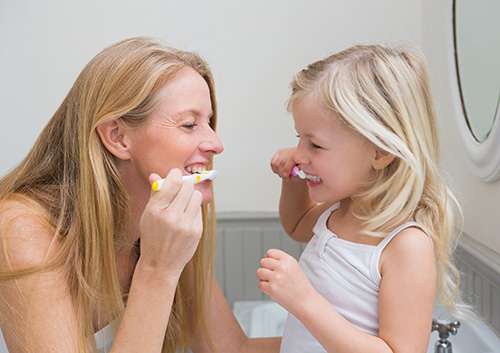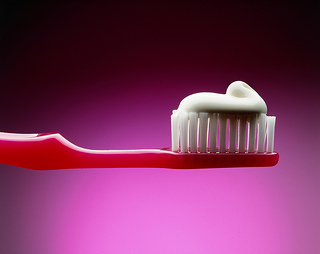
Getting to the Root of the Problem
While our roots are well protected, they’re not indestructible! Several conditions can damage them. But we’re not just about problems—we also have some suggestions to keep your roots solid and intact for a lifetime.
A blow, a fall from a bike, a sports injury—any trauma which can hurt your visible tooth can hurt your roots as well. And it’s not just accidents that cause harm. Cracks in the tooth caused by oral habits like chewing on ice, pencils, or other hard objects can lead to root fractures.
You can help prevent root injuries by wearing a mouth guard whenever you are engaged in contact sports or any physical activity that might cause damage to your face or mouth. If you have harmful oral habits, talk to Dr. Ford and Dr. Guter about how to break them. And if you do suffer a dental injury, see us as soon as possible to avoid more serious complications.
Bruxism, or tooth grinding, is most often an unconscious habit that takes place while you sleep. Grinding puts enormous pressure on teeth and their roots. The damage can be obvious, with cracked and worn crowns, but your roots can be affected, too. The strain of this constant pressure can stretch the periodontal ligament, causing loose teeth.
Night guards are one of the easiest ways to relieve pressure on individual teeth and roots. Your dentist can fabricate a night guard which will provide comfortable, effective protection for your teeth and jaw.
- Infected or Injured Roots
Any infection or trauma which injures the pulp of the tooth will affect the roots as well. Most of us are familiar with root canal treatment, where infected or damaged pulp is removed, and the insides of the pulp chamber and canals are cleaned, shaped, and filled. A crown is usually placed afterward to cap and protect the tooth.
Sometimes, however, an infection can persist after root canal treatment. An oral surgeon is a specialist in treating complex medical conditions of the face, mouth, and jaw. We may have been recommend to you if a surgical procedure is needed to treat infection around or in the root.
When infections persist near the tip of a root, an apicoectomy is a common surgical treatment. In this procedure, Dr. Ford and Dr. Guter will carefully remove a few millimeters from the tip of the tooth, then clean the infected parts of the root and the tissues around it before sealing the root tip.
Other surgical options are available to help prevent extractions when there’s a root problem. A healthy molar with only one root seriously damaged by infection, trauma, or decay can be treated with a root amputation. Here the injured root is surgically removed, preserving the remaining roots and crown. If part of the crown is damaged as well, Dr. Ford and Dr. Guter can perform a hemisection, dividing the tooth to save as much of the undamaged root and crown as possible.
Taking care of your gums is one of the best ways to protect your roots.
Gums often recede as we age, leaving part of the root exposed. Gum disease, failure to brush and floss regularly, and heavy-handed brushing can also lead to gum recession. The newly revealed cementum is now exposed to the plaque and acids that cause cavities in our enamel, and, since it’s not as strong as enamel, cementum is more vulnerable to erosion and cavities progress more quickly.
When more severe recession takes place, the gums pull away from the teeth, creating pockets which become home to plaque and bacteria. Left untreated, infection and inflammation can develop, attacking teeth, connective tissue, and bone.
Scaling and planing procedures which clean the root surface can help. If you could benefit from soft-tissue grafting to replace lost gum tissue, schedule a visit to our Virginia Beach, VA office to discover your options.
Healthy roots help you keep your teeth for a lifetime, so it’s important to see Dr. Ford and Dr. Guter as soon as possible if you have any symptoms of potential problems:
- Constant pain in tooth, gums, or jaw
- Pain when biting down
- Loose teeth
- Tooth discoloration
- Sensitivity to hot and cold
- Swelling or pain in the gums around a tooth
Do your part by keeping up with daily brushing and flossing, visiting Dr. Ford and Dr. Guter for exams as recommended, and making an appointment if you are feeling any pain or discomfort. If you could benefit from surgical treatment, talk to your oral surgeon about the most effective treatment options for your individual needs. Strong roots are essential to our oral health, and a lifetime of healthy smiles is something we’re all rooting for!






 Website Powered by Sesame 24-7™
Website Powered by Sesame 24-7™